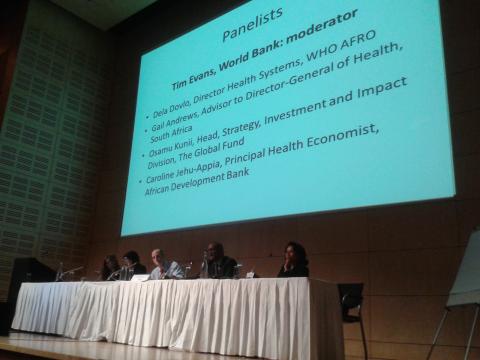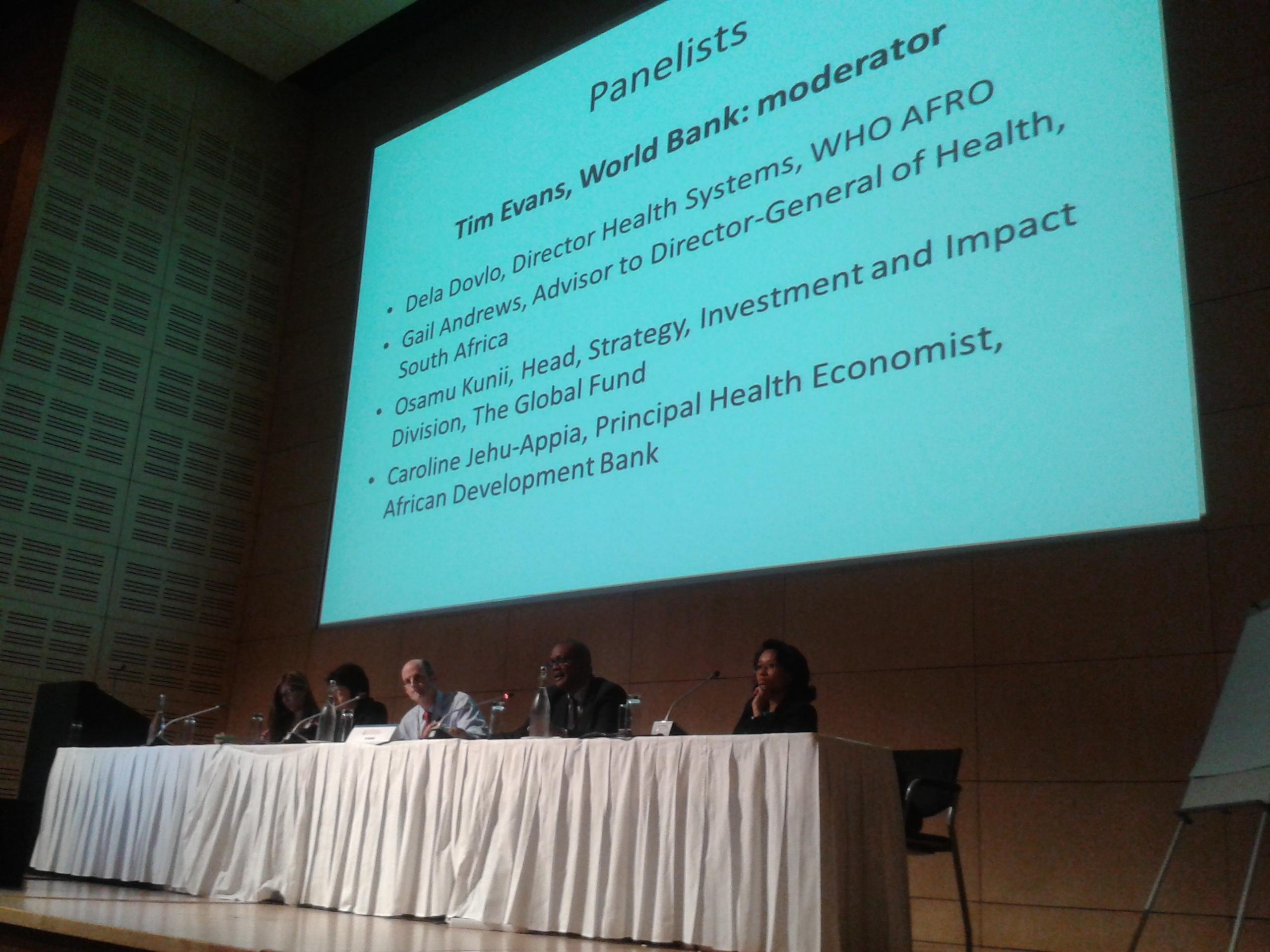
The EU-Luxemburg-WHO Universal Health Coverage Partnership (UHC partnership) ran a well-attended session entitled ‘Policy dialogue: Making national health planning more people centred by involving individuals, families, communities and services providers in the health sector decision making process’ at the 3rd Global Symposium for Health Systems Research last week (1-3 October 2014). This Symposium, held this year in Cape Town, South Africa, brings together over 1,500 researchers, policy makers, civil society representatives, and practitioners every 2 years to specifically discuss and debate on research for better health systems.
The Partnership was honored to have the eminent Timothy Evans, Senior Director, Health Global Practice, World Bank, moderating the open-debate ‘World Economic Forum’-style session. Dr Evans was successfully bringing in an engaged audience into a lively debate.
Due to the Ebola outbreak in West Africa, panellist Dr. Agnes Soucat, Director, Human Development of the African Development Bank, had to cancel and was ably replaced by her Principal Health Economist, Dr. Caroline Jehu-Appiah, who emphasized that ‘getting participation from all walks of society for policy dialogue is the easy part’. Getting meaningful and qualified participation is much, much more difficult and needs to be worked at, with relationships and capacity built up over time.
A compelling country viewpoint was presented by Dr. Gail Andrews, Advisor to the Director-General of Health, South Africa. She underscored the need for a solid evidence base for policy dialogue, even where the issues are inherently political. Dr. Andrews recounted the example of the Choice on Termination of Pregnancy Act, which substantially liberalised the abortion law in South Africa, permitting the termination of a pregnancy on the basis of the woman’s choice; she thus demonstrated that a highly political topic with strong opposition can be argued on evidence grounds as well as human rights grounds and a solution can be found.

Dr. Dela Dovlo, Director of Health Systems, WHO Africa Regional Office, highlighted the work of the UHC Partnership in the 19 target countries and offered salient examples of different types of policy dialogue. Dr. Sam Kunii, Head of Strategy, Investment and Impact Division, The Global Fund for HIV, Tuberculosis, and Malaria, brought in the perspective of Global Health Initiatives and the considerable weight and influence they bring into aid-dependent countries’ policy dialogue processes. Dr. Evans closed up the spirited discussion by lauding WHO for having worked closely with donors to enable funding of the UHC Partnership. He acknowledged the nebulous and difficult nature of policy dialogue and the even more challenging issue of demonstrating clear-cut results – several reasons why donors tend to shy away from investing in this area.
All in all, the session was deemed a resounding success; WHO will continue to disseminate the work of the UHC Partnership through similar forums in the future and will keep you updated through this web portal.
